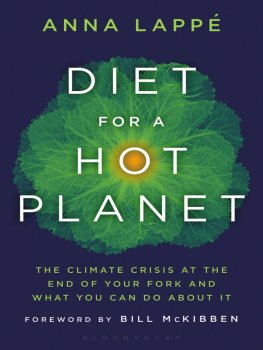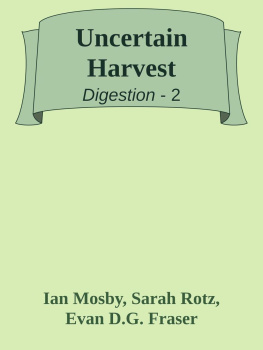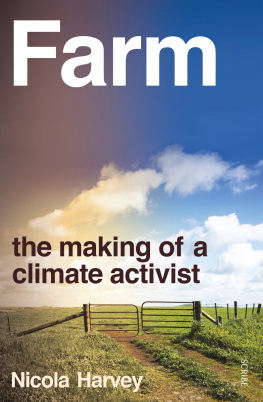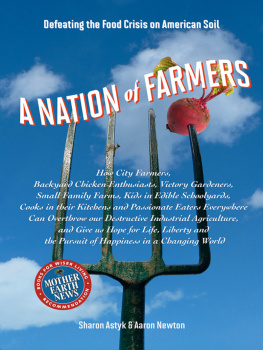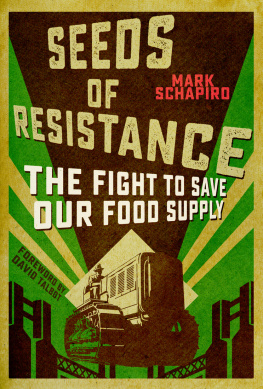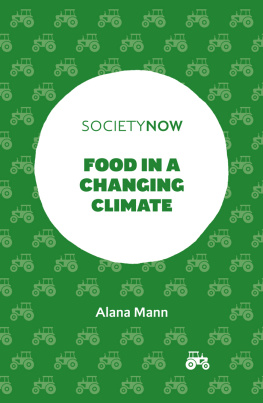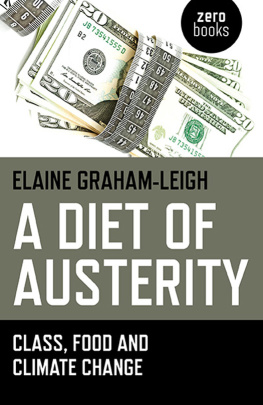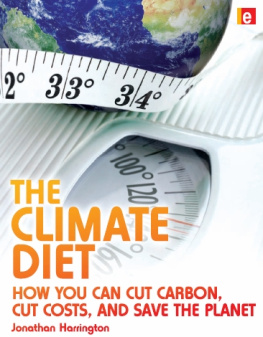All rights reserved. No part of this book may be used or reproduced in any manner whatsoever without written permission from the publisher except in the case of brief quotations embodied in critical articles or reviews. For information address Bloomsbury USA, 175 Fifth Avenue, New York, NY 10010
LIBRARY OF CONGRESS CATALOGING-IN-PUBLICATION DATAHAS BEEN APPLIED FOR.
First U.S. edition 2010
the daughters who will come after.
Like artistic and literary movements, social movements are driven by imagination... Every important social movement reconfigures the world in the imagination. What was obscure comes forward, lies are revealed, memory shaken, new delineations drawn over the old maps: It is from this new way of seeing the present that hope emerges for the future... Let us begin to imagine the worlds we would like to inhabit, the long lives we will share, and the many futures in our hands.
SUSAN GRIFFIN, environmental philosopher
Climate change is the biggest thing human beings have ever done; nothing else even comes close. Weve already managed to substantially melt the Arctic, to force epic drought, to thaw the high-altitude glaciers that water Asia and South America, all with a single degree of temperature rise. The scientists are all but unanimous in the conclusion that unless we very quickly mend our ways, we will see another five or six degrees rise before children now in their infancy reach their old age. So wed better mend our ways.
And as Anna Lapp demonstrates here better than anyone ever has, that means fixing not just our cars and our power plants but also our menus. It stands to reason that the quintessential human activity, agriculture, would play a role in our fate, and as she proves beyond any doubt, that role is large. Livestock alone may account for more global warming gases than automobiles; the entire industrial food system essentially insures that your food is marinated in crude oil before you eat it.
That industrial food system has rarely been more damningly described than in this bookespecially the endless spin employed by an army of lobbyists to justify the unjustifiable, to spread doubt where no doubt exists, to undermine the obvious answers that common sense provides. Of course its a bad idea for the environment for our culture to have evolved a system of monoculture and concentration, of fast food and quick profit. Bad for our bodies, too.
And bad, crucially, for our communities. But this is the hopeful point Id like to make: A new way of eating will not only mean less greenhouse gases; it will mean more community, and thats almost certainly key to solving the other three quarters of the global warming puzzle. Consider the farmers market, the fastest-growing part of the American food economy. Its a good idea environmentally: The tomato that travels five miles requires less petroleum than the long-distance traveler. (And tastes better. I mean, think how you feel after a journey of several thousand miles. Thats how the tomato feels, too.) But the biggest difference may be in the experience of shopping.
When sociologists studied the behavior of customers at supermarkets, they found what we all know: You drop into a trance, visit the routine stations of the cross, and emerge blinking back into daylight with the same bag of stuff you had the week before. At the farmers market, on the other hand, the average shopper has ten times as many conversations. Ten times! Thats one of the reasons people like it. And in a society thats been hollowed out by access to cheap fossil fuel, in the first society on earth where people have no practical need of their neighbors for anything, thats a priceless trait. The farmers market is the place where community can start to regrow, and hence lay the groundwork for all the other things that need doing: the new bus system, the ride-sharing network, the neighborhood wind turbine.
I remember some years ago, before it was quite fashionable, feeding my family for a year only on food from our valley in Vermont. It required new thinking about cookingI had a more limited palette to draw on, and hence to please our palates I had to think a little harder. Which was good, but not as good as the fact that I came away from the experience with a whole roster of new friends, the farmers up and down the valley who made each day not just possible but delicious.
Thats the sweet world on the other side of the ruinous system we now rely on. Getting there wont be easythese are entrenched powers, and it will take more than individual actions to uproot them; it will take real political involvement. But food is the right place to begin. Three times a day, were reminded of what is, and what could be. What will be, if we have the good sense to pay attention to Anna Lapp.
BILL MCKIBBEN
Why This Book?
Sometimes the Onion really lands a headline.
Still barely into the research for this book, I stumbled on this one: Fall Canceled After 3 Billion Seasons. Yes, you remember fall, dont you? That classic period of the year, the Onion quipped, that once occupied a coveted slot between summer and winter?
As I was chuckling to myself, I looked out of my window to see November snow slowly drifting downward. It was true. There had been no fall this year. Here in Brooklyn, we had gone from balmy to bitter from one day to the next. If future winters are anything like this last one, daffodils will bloom in Central Park in January.
As more of us have become aware of the climate crisis and its ramifications for life as we know it, these weather reflections have come to seem all the more ominous. And as we have become more aware of the climate crisis, usually dubbed the innocuous-sounding global warming, we have come to understand that the future will bring even greater weather extremes, possibly the loss of earths climate as weve known it.
It one specific memory, a totem, of the way weather was. For me, it was during a winter more than fifteen years ago. My mother still lived on forty-five acres in southern Vermont in an old barn she had converted into a homethe horse stalls were her library. (The family joke: from horsesh** to bullsh**.)
It was Christmas eve and the snow had fallen in heaps. Born and raised in California, my brother and I, then in college, still regressed at the sight of snow. Decked in our warmest layers, we dashed out of the house, heading straight for an old logging trail on the property. We had a vision: our very own luge run.
The plan was simple and foolproof. My brother would dig; I would be the test pilot. It was a straightforward routine. He carved into soft snow with a red metal shovel, and I sailed down the newly created path. Where my sled flew off, hed build up the embankment. We continued this way for hours. I would trudge up the hill. Head down the slope. Soar over the not-quite-high-enough edges. There would be more digging, more climbing.

